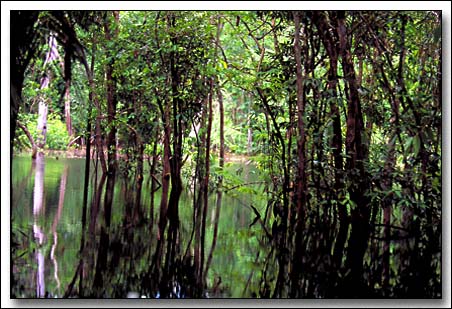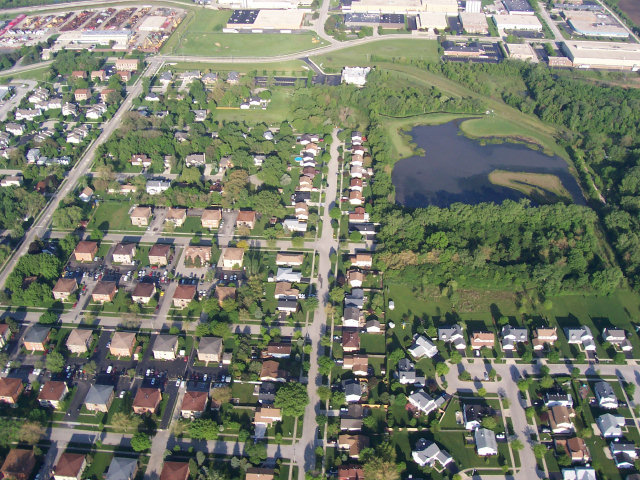Introduction
Causes
Solutions
Further Reading
Games

http://www.unique-southamerica-travel-experience.com/images/49am95-copia.jpg
Home
About me
Projects
What You Can Do to Help Wildlife and
Plants
When most people hear the term endangered species, they
think of manatees, grizzly bears, whales, and other charismatic species. If
these creatures don’t live in your area, you might think there is nothing you
can do to help endangered species. However, the current endangered species list
contains almost 1300 plants, birds, fish, mammals, and other species that might
live or migrate through your area. Private citizens can play a critical role in
protecting our country’s wildlife and plants. Pulling invasive weeds that are
forcing out native plants, rebuilding crumbling river banks, planting native
trees—these are things we all can do to help improve our lands so they provide a
better place for wildlife and humans to live. All endangered and threatened
species need your help, from the familiar and famous species, like the gray
wolf, to the lesser-known but equally important species, such as the Karner
blue--a butterfly and the western lily. Here’s how you can make a
difference:

Source:
http://www.kyle.rchomepage.com/images/neighborhood.jpg
In your
community
° To learn about ways you can assist
native wildlife in your area, contact your local U.S. Fish and Wildlife
Service (FWS) office—http://offices.fws.gov/ or your local natural
heritage program or conservation data
center—http://www.natureserve.org
° Volunteer at your
local wildlife refuge—http://www.fws.gov/volunteers
° Join a local or
national conservation organization.
° Support natural areas and nature
centers near you.
° Work with other community members to maintain
and restore local habitat.
° Contact your State or local fish
and game office to learn how you can become involved in local community wildlife
preservation efforts —http://www.
fws.gov.offices/statelinks.html
° Walk, ride your bike, carpool, or
use public transportation when possible.
° Organize litter cleanups and
recycling drives.
° If you observe evidence of
wildlife poaching, please contact your state fish and game
office—http://www.fws.gov. offices/statelinks.html. State agencies handle
violations of State wildlife laws and have jurisdiction over most local wildlife
management issues.
° Know and follow your fishing and hunting laws. Individual State, territorial, and tribal agencies sell recreational fishing and hunting licenses and are the best source of information regarding hunting and fishing seasons, local regulations, and areas that are open or closed to hunting and fishing - http://www.fws.gov.offices/statelinks.html

Source:
http://www.rajeshkrishnamurthy.com/plog/pics/General/MTVGreenHouse.jpg
At home
° Don’t put hazardous substances
down the drain or in the trash. Things like paint thinner, furniture polish,
and antifreeze can pollute our water and land, impacting people as well as
wildlife. For information on how to dispose of hazardous material properly, see
the environmental Protection Agency’s guide to safe management of household
hazardous
waste—http://www.epa.gov/epaoswer/non-hw/househld/hhw.htm
° Take unwanted, reusable items to a
charitable organization or thrift shop. Use cloth, not paper, napkins.
° Turn the lights and TV off when
you leave a room.
° Recycle everything you can:
newspapers, scrap papers, cans, glass, motor oil, plastics, appliances,
etc.
° Keep your cat indoors. Roaming
house cats do tremendous damage to birds and other wildlife such as field mice,
frogs, squirrels, and lizards. Putting a bell on your cat helps, but keeping
the cat inside is better.
° Don’t leave water running. Turn
off the tap when brushing your teeth or washing your face. Install watersaving
devices, such as low-flow showerheads, to save water and save money.
° Write, e-mail, or call companies that send unwanted junk mail and ask them to take you off their list.

Source:
http://www.flickr.com/photos/84853337@N00/469298841/
In your yard or
neighborhood park
° To get more information on how you
can work with the FWS to restore wetlands and other important fish and wildlife
habitats on your own property, see the Partners for Fish and Wildlife
Program—http://www.fws.gov/landowner.html
° Plant native trees and bushes with
berries or nuts that provide birds and other creatures with food and a place to
live. To learn how you can make your backyard wildlife-friendly, see the
National Wildlife Federation’s Backyard Wildlife Habitat
program—http://www.nwf.org/backyardwildlifehabitat.
° Contact your County Cooperative
Extension Service or local native plant society for help in identifying native
plants. Native species adapted to local climate conditions require fewer
resources and less care to flourish.
° Keep litter, pet wastes, and
leaves out of street gutters and storm drains. These outlets drain directly
into lakes, streams, rivers and wetlands. Pet wastes contain bacteria and
viruses that can threaten fish, wildlife, and people.
° Learn about natural insect
controls as alternatives to pesticides. Grow plants that are natural insect
repellents among your flowers and vegetables to help keep unwanted insects
away. For more information on these and other EPA-recommended ways to make your
lawn environmentally friendly,
visit—http://www.epa.gov/seahome/lawns.html
° If you use fertilizer, calibrate
your applicator to make sure you apply the correct amount. Fertilizing more
than the recommended rate does not help plants grow better and may harm them.
In addition, excess fertilizer may wash into streams and rivers and can lead to
amphibian deformities and deaths as well as excess aquatic plant growth.
° Buy or make your own backyard
composter for your food waste products like coffee grounds, vegetables, fruits,
or other non-animal products. Compost is a natural fertilizer that enriches your
soil. It is especially good for vegetable gardens. For more information on how
to make your own compost, visit—
http://www.hdra.org.uk/gh_comp.htm
° Pull weeds instead of using
herbicides.
° Plant a butterfly garden. To get
started, visit the North American Butterfly Association’s
website—http://www.naba.org/pubs/bgh.html
° If you must use pesticides,
herbicides, or fungicides, don’t throw leftovers in the trash, down a drain or
into a storm sewer; dispose of them properly. Visit the Natural Resource
Conservation Service’s Backyard Conservation website for pesticide disposal
information and other environmental lawn and garden care tips
—http://www.nrcs.usda.gov/feature/backyard.

Source:
http://www.flickr.com/photos/39533414@N00/236295782/
When you’re on
vacation
° Turn the heat and water heater
down before you leave home.
° Don’t pick flowers or collect wild
creatures for pets. Leave animals and plants where you find them.
° Going abroad? Think twice about
the things you buy. Travelers don’t realize that several U.S. laws and an
international treaty make it a crime to bring many wildlife souvenirs into our
country. To learn more about these laws and what products are illegal to import
into the U.S., visit the FWS Law Enforcement
page—http://www.le.fws.gov/info_importers_exporters

Source: http://www.communitychurchsyv.org/Missions.file/Classroom3.JPG.jpg
In your classroom
° Ask your teachers to help you
organize clean up days.
° Remove trash or invasive weeds
from vacant lots or streams. Replant eroding river banks with native trees that
will stabilize the soil and reduce the amount of dirt going into the river. This
will not only improve the quality of water for aquatic life and humans, it will
provide habitat for birds and mammals.
° Plant a garden on your school
grounds to attract wildlife, birds, and butterflies. Build homes for bats and
birds, and have the project certified by National Wildlife Federation’s Backyard
Wildlife Habitat
program—http://www.nwf.org/backyardwildlifehabitat.
° Hold a school Arbor Day native
tree planting. Invite local officials. Visit theNational Arbor Day
Foundation’s website – www.arborday.org/
° A growing number of local
freshwater fishes whose existence are threatened by unhealthy rivers and
streams. Grants are available to teachers for raising and breeding these fish
for release.—http://www.troutintheclassroom.com/
° Explore nature in your
neighborhood by celebrating National Wildlife Week at your school. For more
information, visit the National Wildlife Federation’s
website—http://www.nwf.org/nationalwildlifeweek/

Source: http://www.phuket.net/images/things/shopping.jpg
When you’re
shopping
° Only buy rare or “exotic” pets
from reputable pet stores that can provide paperwork to demonstrate that the
animal was legally acquired. Some rare or exotic pets may have been smuggled
into the country or taken from their natural habitat.
° Don’t buy products that come from
endangered and threatened plant and animal species.

Source:
http://www.phuket.net/images/things/shopping.jpg
In your
car
° Don’t throw cigarettes or trash
out your window. Cigarettes cause thousands of forest fires every year. Food
trash along roadsides attracts animals that can be killed by cars.
° Recycle your engine oil. Contact
your local Solid Waste Management Office to find out where.
° Keep engines well-tuned and tires
properly inflated to maximize fuel efficiency.
Consider a career in
conservation!
Join the thousands of dedicated men and women who are working to protect wildlife and plants here in the U.S. and around the world. For more information on career opportunities, visit— http:// www.fws.gov/hr/HR/careers_fws.htm
Source:
http://www.fws.gov/endangered/pubs/WhatYouCanDo0905.pdf
U.S. Fish and Wildlife Service Endangered Species Program 703/358-2171